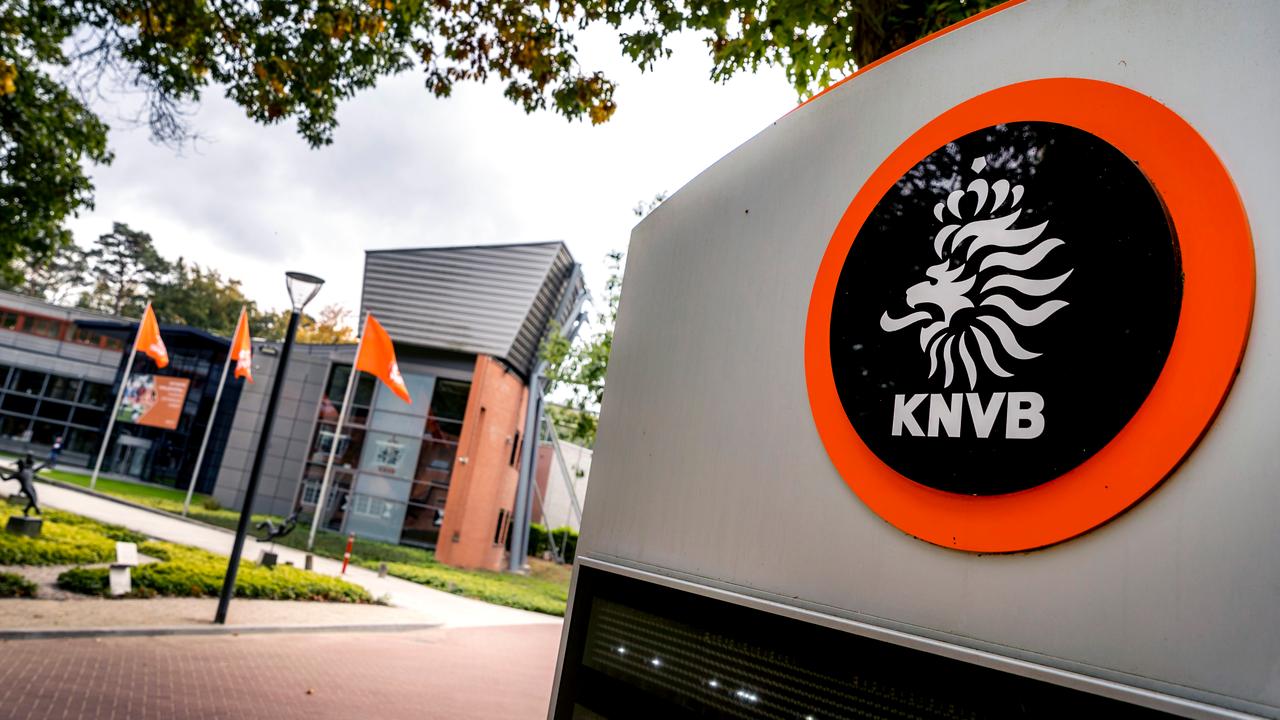The Dutch national football team took a stand to protest the 2022 World Cup in Qatar earlier in March.
A delegation from the Dutch football association (KNVB) has met with migrant workers in Qatar after months of protests over rights in the Gulf state in the lead up to the World Cup next year.
“The World Cup clearly works as a catalyst for labour rights,” said Gijs de Jong, the secretary-general of the KNVB, who recently visited the Gulf state.
De Jong vowed that the Dutch team will make the case for a “better future” in Doha during the 2022 World Cup, including “symbolic” acts such as visiting migrant worker camps.
“Football should push for broader human rights change,” he added.
“As a legacy, of course we would want it guaranteed that the legislation and reforms agreed in the past few years would be permanent and implemented fully across the whole country. That’s on kafala, on heat protocols, on minimum wage. It would be even better if the work centre introduced by the BWI [Building and Woodworkers’ International] was made permanent,” he added.
In the KNVB’s visit to Qatar, the delegation spoke to about 15 migrant workers from different sectors. The delegation said these visits “indicated that the situation is more complex than many people think.”
“The migrant workers we spoke to were very positive about the work of the FIFA World Football Association, because the changes are visible everywhere they have direct influence. They also see the World Cup as part of the solution. At the same time, many things still go wrong,” said de Jong.
United Cause: How Palestine has taken centre stage at the FIFA Arab Cup in Qatar
Boycott calls
In recent weeks and months, there have been growing calls from Europe to boycott the 2022 World Cup in Qatar over human rights concerns.
Norway first triggered the efforts when a growing number of football clubs urged the country’s football federation to pull out of next year’s World Cup in Qatar. This was then picked up by other teams across Europe, including The Netherlands and Germany.
In March, the Dutch men’s football team wore T-shirts reading “Football supports change” in an statement against Qatar’s human rights track record ahead of the 2022 World Cup.
The Dutch team said in a statement that “Qatar is where we’d like to become world champions. But not without looking outside the box. That’s why we use our football for change.”
Speaking to Doha News in March, the Dutch football federation admitted it was never in favour of the Qatari bid for the 2022 edition of the World Cup due to its “lack of football history and harsh temperatures”.
However, the KNVB later added that it does not believe that a boycott will help.
“If you want to help improve the situation, you go there and raise awareness,” KNVB told Doha News. “Boycott does not help the people working there.”
That month, Dutch team coach Frank de Boer said in a press conference that they were advised by internationally renowned human rights groups to go ahead with the tournament after talks with rights organisations.
“Human Rights Watch and Amnesty International have said that if we go there, we can better promote the cause,” de Boer said.
It’s noteworthy that Frank de Boer’s brother, Ronald de Boer, was appointed a Qatar Legacy Ambassador for the Supreme Committee for Delivery & Legacy (SC) to deliver and promote FIFA World Cup Qatar 2022’s legacy initiatives.
Questions were also raised about motivations behind boycott attempts of this magnitude, with experts pointing to a lack of similar action in other host countries with human rights violations of their own, such as Brazil and Russia.
FIFA previously argued that awarding the hosting of the World Cup to Qatar opens the door to social improvement, which has been proven through a series of historic labour reforms revealed earlier this year.
Despite Qatar’s progress with regards to migrant worker conditions, western media outlets have continued to release reports with what Qatari authorities slammed as “sensationalised” headlines.
Among the major reforms Qatar made was the introduction of the region’s first ever non-discriminatory minimum wage, under which employers employers must pay allowances of at least QAR 300 for food and QAR 500 for housing on top of the minimum monthly basic wage of QAR 1,000.
Employers who pay their staff less than the minimum wage face one-year in jail and a QAR 10,000 fine.
Qatar also drastically enhanced monitoring across the board to detect violations, enacting swifter penalties and further strengthening the capacity of labour inspectors.
So far, dozens of companies have faced action from authorities for violating the new laws.
Follow Doha News on Twitter, Instagram, Facebook and Youtube







